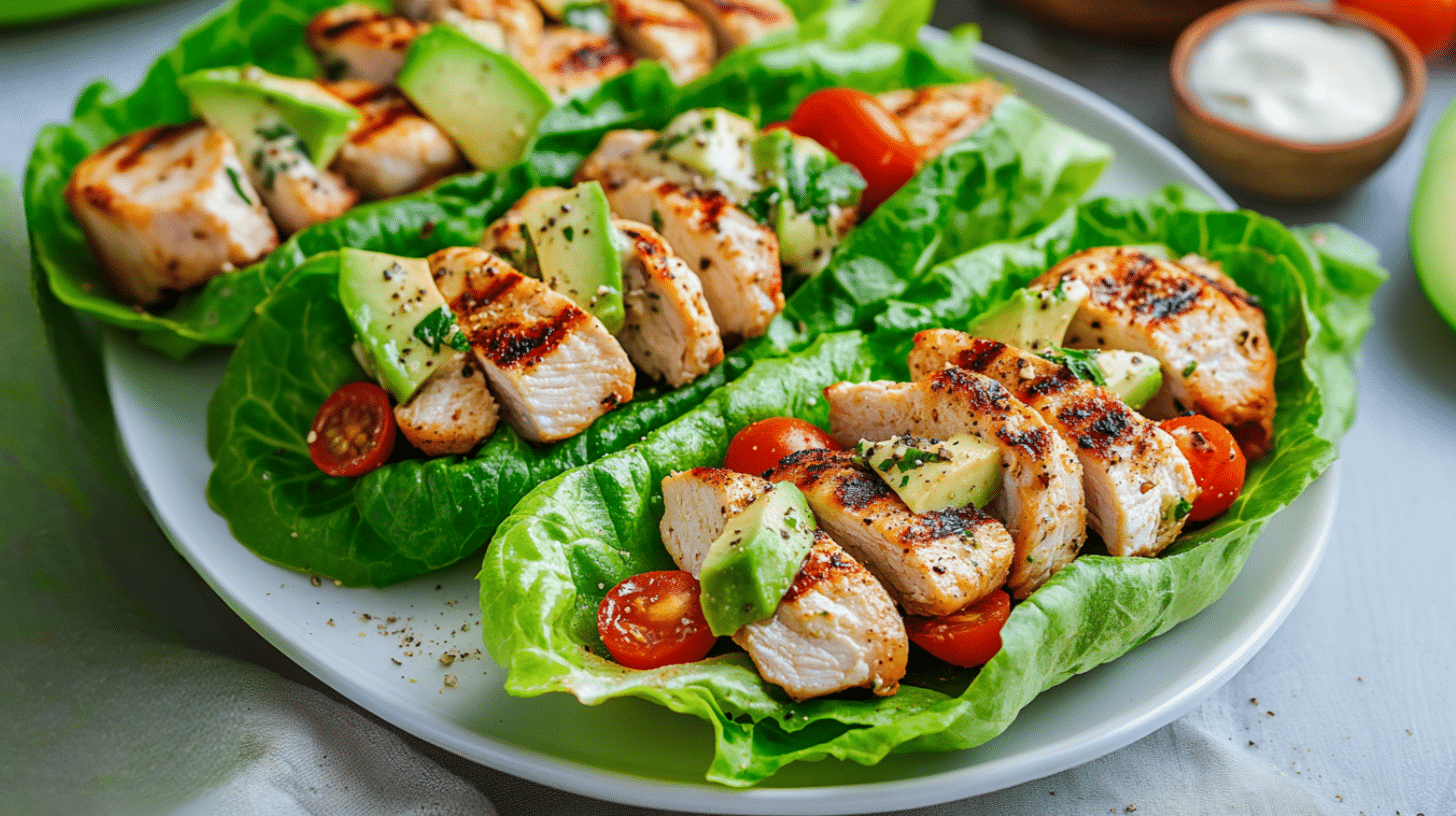Paleo offers a refreshing alternative to fad diets by focusing on whole, unprocessed foods inspired by the eating habits of early humans during the Paleolithic era. Rooted in simplicity, it emphasizes nutrient-dense ingredients like lean proteins, healthy fats, fruits, and vegetables while eliminating processed foods, grains, and refined sugars.
The philosophy of the paleo diet centers on returning to the basics—what early humans consumed before the rise of agriculture and processed foods. By prioritizing natural ingredients, the diet advocates for nutrient-dense foods that align with our biological needs while avoiding modern industrialized products that can hinder our health. Focusing on high-quality, satisfying foods makes it an effective choice for achieving sustainable weight loss and long-term wellness.

How the Paleo Diet Promotes Weight Loss
Paleo promotes weight loss by embracing the eating habits of early humans, focusing on whole, nutrient-dense foods. The diet provides essential nutrition while naturally reducing calorie intake by prioritizing lean meats, fresh fruits, vegetables, and nuts. Its emphasis on unprocessed ingredients eliminates the refined sugars and empty calories often linked to weight gain.
The paleo approach stabilizes blood sugar levels and reduces inflammation, key factors in effective weight management. By fostering satiety through high-quality proteins and healthy fats, this diet helps curb cravings, making it easier to maintain a sustainable and healthy lifestyle.
Natural Caloric Reduction
The paleo diet naturally reduces caloric intake by focusing on whole, unprocessed foods. These foods are satisfying and nutrient-dense, filling you up without the extra calories. Consuming lean meats, vegetables, and fresh fruits leads to feeling fuller longer, minimizing the need for frequent snacking or large portions. Unlike processed foods, these options are less calorie-dense, supporting a lower calorie intake without strict portion control.
Reduced Inflammation and Better Digestion
Many foods in the paleo diet have anti-inflammatory properties, which can help reduce chronic conditions and improve digestion. By eliminating dairy products, refined sugar, and artificial sweeteners, the body experiences less inflammation, a common contributor to weight gain and other health issues. Improved digestion from consuming more natural foods aids nutrient absorption and boosts metabolism, making weight management more effective.
Improved Insulin Sensitivity
A key benefit of the paleo diet is improved insulin sensitivity. By cutting out refined sugars and grains, blood sugar levels stabilize, reducing the risk factors for insulin resistance. With better insulin sensitivity, the body can process carbohydrates more efficiently, preventing spikes in blood sugar that can lead to weight gain. This stable blood sugar environment supports a healthy weight loss journey and is critical in maintaining a balanced diet rich in nutrients.

Key Foods in the Paleo Diet
The paleo diet emphasizes whole, unprocessed foods that mirror what our ancestors consumed during the Paleolithic era. This approach supports weight loss while promoting overall health by focusing on nutrient-dense ingredients. By prioritizing clean, natural foods, the paleo diet fosters a balanced lifestyle that aligns with the body’s biological needs.
Paleo-Approved Foods
The paleo diet includes a wide range of nutritious and delicious foods. Some of the core foods allowed are:
- Lean meats such as chicken and turkey provide essential protein without unhealthy fats.
- Fresh fruits and vegetables like apples, berries, carrots, and leafy greens offer vital vitamins and antioxidants.
- Nuts and seeds for healthy fats and fibers, including almonds and sunflower seeds.
- Seafoods such as wild-caught salmon and shrimp are rich in omega-3 fatty acids.
- Healthy oils like olive oil and coconut oil for cooking and dressing.
These foods are central to the paleo diet because they are minimally processed and closely resemble the diet of early humans.
The Role of Protein and Healthy Fats
Protein and healthy fats play crucial roles in the paleo diet. Lean proteins from sources like grass-fed beef and wild-caught fish help build muscle and sustain energy levels throughout the day. Healthy fats in foods like avocados and nuts enhance the body’s ability to burn fat and improve insulin sensitivity.
These nutrients also help to curb cravings, making it easier to stick to your calorie intake goals and support weight loss efforts. By focusing on these high-quality ingredients, the paleo diet facilitates a more stable and energetic lifestyle while promoting effective weight management.
Foods to Avoid on the Paleo Diet
Embarking on a paleo diet means embracing the meals of our ancestors. Adopting the paleo diet involves making mindful choices about what to eat, focusing on foods that align with our evolutionary biology. Eliminating processed foods and modern agricultural products promotes better health and supports weight loss. Knowing which foods to avoid is essential to embrace the paleo lifestyle and reap its benefits fully.
Non-Paleo Foods to Eliminate
Certain foods aren’t part of the paleo diet due to their modern, processed nature:
- Grains: Wheat, rice, and oats are off-limits as they require processing and often lead to insulin spikes.
- Dairy: Milk, cheese, and yogurt are eliminated since early humans did not domesticate animals for milk.
- Refined Sugar: Found in sweets and many packaged foods, refined sugar is excluded for its role in weight gain.
- Legumes: Beans, lentils, and peanuts are avoided because they contain anti-nutrients that can affect digestion.
- Processed Oils: Oils like canola and soybean are often industrially produced and are not present in a natural diet.
Why These Foods Are Excluded
The exclusion of non-paleo foods aims to minimize potential health risks. Grains and sugars can cause weight gain and blood sugar spikes, contributing to chronic illnesses like diabetes. Dairy products may lead to inflammation and digestive discomfort for some individuals. Legumes can inhibit nutrient absorption due to their anti-nutrients. Processed oils often increase the risk of cardiovascular disease due to their unhealthy fat composition. The paleo diet aims to enhance well-being and support weight loss by avoiding these foods.

Benefits Beyond Weight Loss
The paleo diet offers numerous benefits beyond just weight loss. By focusing on whole, nutrient-dense foods, this diet can significantly boost energy levels, leading to more productive days. Many followers report experiencing better sleep, as eliminating processed foods and sugar helps regulate the body’s natural sleep patterns.
The paleo diet is known for its positive effects on skin health. Consuming fresh fruits and vegetables, rich in vitamins and antioxidants, can result in clearer and more vibrant skin. Another significant advantage is the reduced risk of chronic illnesses. Since the diet eliminates refined sugar, artificial sweeteners, and processed foods, it can lower the risk of cardiovascular disease, diabetes, and other health conditions.
Focusing on whole foods makes the paleo diet sustainable for many. It allows individuals to enjoy meals without feeling restricted, creating a healthy and enjoyable lifestyle. This diet supports overall well-being and promotes long-term adherence by incorporating lean meats, fresh fruits, and healthy fats like olive oil.
Challenges of the Paleo Diet
While the paleo diet offers many health benefits, it can also present a few challenges. One of the main difficulties is avoiding foods like bread, dairy, and processed snacks, which are staples in many diets. Cravings for these familiar foods are common, but they can often be managed with healthier paleo-friendly substitutes.
Another challenge is the potential cost of organic produce and grass-fed meats. However, there are budget-friendly strategies to make the diet more affordable, such as buying frozen vegetables, purchasing in bulk, or exploring local farmers’ markets for fresh, inexpensive options.
Additionally, some may worry about missing key nutrients like calcium and vitamin D. Fortunately, these concerns can be addressed with paleo-approved alternatives. Leafy greens, almonds, and sardines can provide calcium. At the same time, mushrooms and fatty fish are great sources of vitamin D. In some cases, supplements may also be considered to ensure proper nutrient intake.
Is the Paleo Diet Right for You?
The paleo diet may appeal to those aiming for weight loss, improved digestion, or reduced inflammation. It emphasizes whole, unprocessed foods and limits processed ingredients. This can lead to a reduction in calorie intake and refined sugars, supporting weight management. Additionally, it may improve insulin sensitivity and help reduce risk factors for chronic diseases, such as cardiovascular disease. For individuals dealing with bloating or digestive issues, removing dairy products and artificial sweeteners might provide relief.
However, the paleo diet might only suit some. People with specific health conditions or dietary restrictions should proceed with caution. For instance, those with kidney issues need to monitor protein intake, while individuals requiring specific nutrients found in grains and dairy products might face challenges. Consulting with a healthcare professional is advisable.
Taking the Next Step with Paleo for Lasting Health and Weight Loss
The paleo diet offers a unique approach to weight loss by focusing on whole, nutrient-dense foods that nourish your body and align with its natural needs. Whether you want to lose weight, boost energy, or improve overall health, paleo provides a sustainable, balanced lifestyle supporting long-term wellness. If you’re ready to see how the paleo diet can work for you, contact Medical Health Solutions to schedule a weight loss consultation. Call (303) 951-8617 today and take the first step towards a healthier you.
Medical Health Solutions in Lone Tree, Colorado offers medical weight loss. The plan helps people lose weight without hunger, dieting or exercise.






